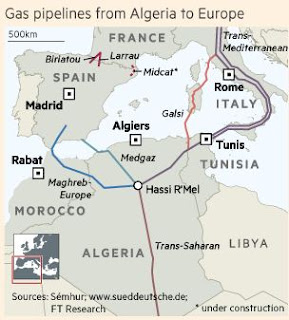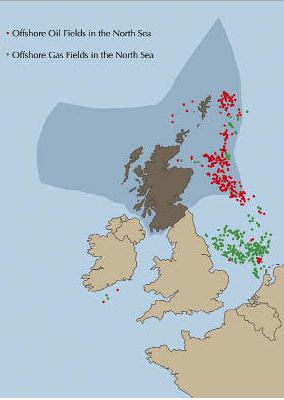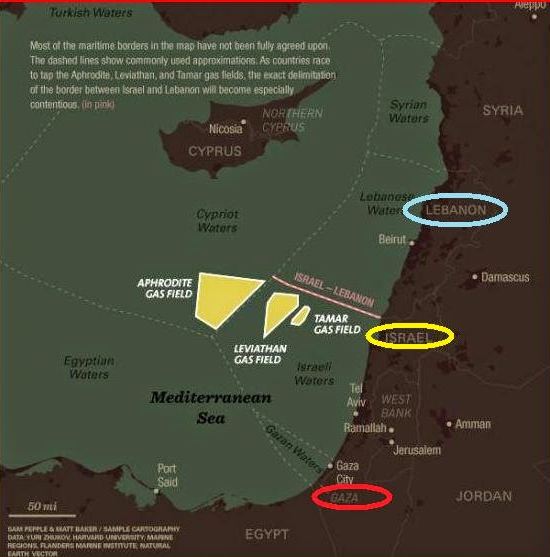80% of the
Catalans believe that Catalonia pays too many
taxes to support Spain , and
they also believe that the investments of the central Spanish government to Catalonia are very small when compared to Catalonia
See “Catalonia
The discussion between the Spanish
and the Catalans resembles the discussion between the northern Europeans and
the southern Europeans, with the Catalans accusing the rest of Spain for not trying enough, and the rest of Spain Scotland in Great
Britain , of Flanders in Belgium ,
of the Basque Country in Spain
and of Venice in Italy
Map 1 (rough) Catalonia
Map 2 The Basque Country
Map 3 Flanders
Map 4 Scotland
(Great Britain
Map 5 Venice
(Italy
https://en.wikipedia.org/wiki/Venetian_independence_referendum,_2014#/media/File:Veneto_in_Italy.svg
The European Union and NATO see with
great anxiety all these separatists movements, because they could destabilize
and Balkanize Western Europe. For Russia Venice independence would destabilize Northern Spain and
Northern Italy and would make it harder for the Algerian and Libyan natural gas
and oil to travel to Europe and compete with
the Russian state owned giants Gazprom and Rosneft. The Nigerian natural gas
can also travel to Europe through Algeria ,
Spain and Italy
Map 6 Catalonia ,
Basque Country and Venice
Actually Russia and Spain have a long rivalry
that goes back to the 1930s and the Spanish civil war, when Hitler and
Mussolini were supporting General Franco’s nationalist socialists and Stalin
was supporting the Spanish communists. The nationalists finally won the war in
1939. After the end of the Second World War, Spain
and Russia Spain
and Russia Spain spain
4η, 5η, 6η , 7η, 8η
Παράγραφος
He said others
''want deceitfully to prevent our people from reaching the objectives of a
peaceful and modern life, crowned with liberties, in the place that corresponds
to us as a free nation.''
A high Government
official said later that the Prime Minister was referring to ''the Soviet Union
and its satellites,'' which the official said included Cuba , Libya
and Algeria
For some time,
Spanish politicians and others have speculated that the Soviet Union might be
assisting the Basque terrorist organization E.T.A., hoping to precipitate a
military coup that would prevent Spain
from joining the North Atlantic Treaty
Organization. But Mr. Calvo Sotelo was the first to make the accusation,
however veiled, in public. 2 Soviet Aides Expelled
Since Mr. Calvo
Sotelo took office - the formal vote installing him was interrupted Feb. 23 by
an aborted military coup - relations with the Soviet Union
have markedly cooled. Two high-ranking Soviet officials have been expelled, and
20 other Soviet citizens have been told that their residence permits will not
be renewed. The Government has also taken measures to reduce the Soviet fishing
fleet near the Canary Islands .
A central feature of
Mr. Calvo Sotelo's program has been a commitment to bring Spain
However there was something uniting Spain and the Soviets, and that was the conflict
between the Spaniards and the English over Gibraltar .
Gibraltar is of great strategic importance for controlling the straits connecting
the Mediterranean Sea and the Atlantic Ocean .
Map 7 Gibraltar
Gibraltar has been under English control
since 1713, but the Spanish want to regain its control, as you can read at the
following Financial Times article, titled “UK accuses Spain
of ‘clear violation’ of Gibraltar ’s sovereignty”, Augusts 2015.
The conflict
between Spain and England over Gibraltar was the main argument of
the Spanish left which wanted Spain Spain Spain Spain
I have
mentioned in the past that Spain
wants to provide Europe with an alternative to
the Russian natural gas. Spain
has the largest LNG facilities in Europe as
you can read at the following Bloomberg article, titled “Gas Carousel Making Spain Europe’s Biggest LNG Exporter”, April 2014.
Map 8
Spain-Algeria-Natural Gas
However Spain is not yet connected with the rest of Europe with pipeline networks, but that can change if the
European Union decides to finance such pipeline networks. As you can read at
the following Euractiv article, titled “Spanish MIDCAT
pipeline to replace 10% of Russian gas imports”, January 2015, at the
moment there is only one pipeline connecting Spain
and France Spain
expects from the European Union to finance the MIDCAT pipeline, which will
connect Spain and France
“Spanish
MIDCAT pipeline to replace 10% of Russian gas imports”, January 2015.
1st
and 2nd Paragraphs
Spain's
sophisticated gas infrastructure could help Europe reduce its dependence on
Russian supplies once projects to pump gas across the Pyrenees become a
reality, the head of a Spanish gas association said yesterday (27 March).
Europe's most highly
diversified gas importer has vast untapped import capacity which it could use
to route gas into France Spain
5th,
6th, 7th, 8th, 9th, 10th,
11th and 12th Paragraphs
Spain, meanwhile,
does not receive any of its natural gas from Russia
and was entirely shielded from the EU gas crises of 2006 and 2009 when rows
over unpaid bills between Kyiv and Moscow
Strategically
positioned on the Mediterranean, about half of its gas comes from Algeria
Now it is lobbying
the EU to forge ahead with plans for a new pipeline, called MIDCAT, to
transport gas into Europe .
MIDCAT, which is
currently on the European Commission's list of strategically important
projects, would put Spain 's
interconnection capacity with France
"With this
pipeline Spain could replace
10% of what Europe currently receives from Russia
Right now there is
only one gas pipeline between Spain
and France
A new pipeline
called Biriatou, running from Spain 's
Basque Country into France
As you can read
at the following Financial Times article, titled “France , Spain
and Portugal look to unlock Algeria gas exports”, June 2015, France , Spain
and Portugal are promoting a
plan which will bring the Algerian gas to Europe through the Pyrenees Mountains Pyrenees Mountains
are the natural border between France
and Spain
Map 9 Pyrenees Mountains
Map 10
Algerian Pipelines to Europe
Source: FT
“France , Spain
and Portugal look to unlock Algeria
I hope that
it is by now obvious how useful it would be for Russia ,
Turkey and Iran if there were disputes in northern Italy and Spain Europe .
Map 11 The
Basque Country, Catalonia and Venice
At the
north of Spain , there is the
issue of Flanders in Belgium France and Germany
could arise, and that would push Germany
closer to Russia
For Scotland North Sea , the Scottish
people started asking for their independence. But the prices of oil and gas exhibit
significant fluctuations and the Scottish people are not sure whether an
independent Scotland Scotland Persian Gulf ,
the Scottish people might come back with a new referendum for independence.
See also
“The Oil and Natural Gas of the North Sea :
The Case for Scottish Independence”
The Arctic
Ocean is very rich in oil and natural gas, and USA
(Alaska ), Norway ,
Denmark (Greenland), Canada and Russia
Map 12 Oil
and Gas Reserves of the Arctic Ocean
The United States , Canada ,
Denmark and Norway , are all NATO members, and even though
they have some internal disagreements they are united against Russia Scotland becomes an independent state and has
disputes with England , Scotland might have a motive to turn to Russia , since England
Mar 13 Arctic Ocean and North Pole
At the following
Guardian article, titled “Russian ambassadors: next we'll
take Catalonia , Venice ,
Scotland and Alaska ”, April 2014, you can read that a conversation
between the Russian ambassadors of Eritrea
and Zimbabwe Russia must take Crimea ,
Catalonia , Scotland ,
Venice and Alaska
“Russian ambassadors: next we'll take Catalonia , Venice , Scotland and Alaska
The
European Union is worried with the possibility of a balkanization of Europe,
and has clearly said to Scotland
and Catalonia Brussels says an independent
Catalonia
Moreover as
you can read at the following article of the Independent, titled “Catalan independence: Voters head to polls in 'de facto
referendum' on seceding from Spain ”,
September 2015, Barack Obama and the United States Catalonia
3rd
Paragraph
The government of Spain and a host of political leaders across
Europe have said that an independent Catalonia
10th
Paragraph
At the heart of the
issue is any future Catalan state’s membership of the European Union, which Mr
Mas and his allies say is automatic. Mr Rajoy has moved to scotch this idea and
has persuaded other European leaders, including David Cameron, to say that Catalonia Catalonia
Therefore
it seems that the Scottish, the Catalonian, the Basque and the Flemish
independence could significantly destabilize Western Europe, which for the
moment is Europe ’s safest part. For Russia
I must also
mention that the Russians have tried to purchase a stake in the Spanish energy
giant Repsol, as you can read at the following article from the Russian state
owned Sputnik, titled “Gazprom looks at buying 20% in Spain's Repsol”,
November 2008.
In the past
the Russians also tried to purchase Sonatrach, the Algerian state owned energy
giant. See “Gazprom VS NATO : The War for Europe ”.
With all
the above I do not mean to say that Russia
and Spain are in some kind
of war as it is the case with Russia
and Turkey Russia and Spain Spain ,
the Spaniards and the Russians made some energy deals as you can read at the
following Reuters article, titled “Russia , Spain

























